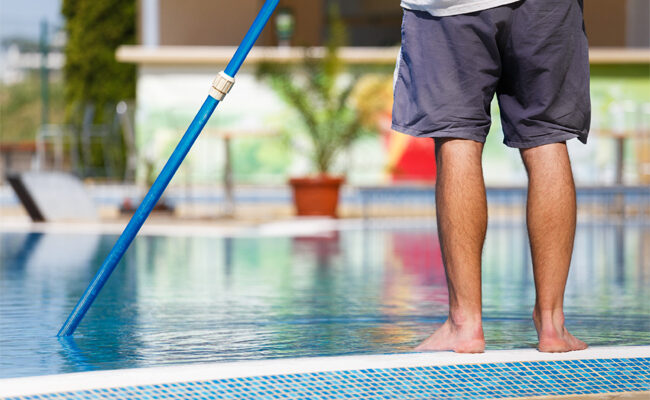
Did you know that there are over 10.4 million Americans who own residential pools?
For many homeowners, a pool is a great addition to their dream home. However, many also overlook the conditions that come with owning a pool. As a responsible pool owner, it’s crucial to follow proper pool maintenance.
Want to know how pool maintenance works? This article covers some crucial tips on proper swimming pool care. Read on to find out the best practices for pool care.
Have a Designated Cleaning Schedule
Your pool requires regular cleaning so that you can enjoy safe swimming. Your swimming pool is prone to natural elements like mold and leaves. There may also be residue from hair products and even perfumes.
It’s best to clean your pool at least once a week. Start by skimming, then brush and vacuum your pool. This ensures that your water and pool walls stay clean.
If you need to cut down your cleaning time, consider using an automatic pool cleaner. You will still need to skim and brush your pool, but with less time and effort.
Circulate Your Water Well
Your pool needs good circulation to prevent issues like algae or cloudy water. To ensure proper water circulation, ensure to run your pump and filter system every day. The best-case scenario is to run your pool pump 24/7.
However, not all pool owners have the budget or equipment to do this. If this isn’t possible for you, aim to run your filter for at least 10-12 hours every day. This allows the water to turn over several times, so your water stays clean.
Another good practice to ensure good pool circulation is to backwash your filter. Backwashing pertains to the practice of reversing the water flow through the filter. This allows you to push out contaminant build-up and dirty water to the waste port.
Not sure how to do this step? Consider professional swimming pool cleaning services.
Balance Out the Water Chemistry
Understanding basic pool water chemistry is essential to caring for your swimming pool. If you own a pool, it’s crucial to have a water testing kit. This allows you to understand what’s in your pool so that you can work on balancing out the chemicals.
When it comes to pool water chemistry, there are three main things you should pay attention to. These are sanitizer levels, pH levels, and alkalinity.
The pH level refers to how basic or acidic your pool is. Aim to get at least 7.4 to 7.6. The ideal alkalinity range is 100-150 ppm.
Sanitizer levels refer to how much bromine, chlorine, and other chemicals your pool has. The proper sanitizer level will depend on what sanitizer you use for your pool.
The Basics of Proper Swimming Pool Care
Here are some crucial tips for swimming pool care you need when looking after your pool. With these three steps, you now know how to take care of a swimming pool.
Thanks for reading our article! Looking for more home maintenance tips? Check out our other blog posts to discover more.
Leave a Reply